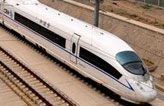Op-Ed Contributors
What troops pullout means to Kabul
Updated: 2011-07-21 07:54
By Hu Shisheng (China Daily)
Jan Muhammad Khan, the top aide of Afghan President Hamid Karzai, was killed on Sunday night. He was the second important leader to be assassinated in Afghanistan since the United States began withdrawing its troops earlier this month. On July 12, Karzai's younger half brother Ahmad Wali Karzai was shot dead by one of his guards.
The deaths of the Afghan president's two close aides have prompted the Western media to wonder Hamid Karzai would survive in power until 2014, when NATO troops are supposed to complete their pullout from the country.
Announcing American troops withdrawal plan on June 22, US President Barack Obama said: "America, it is time to focus on nation building here at home." Obama's speech reflected the thinking of other NATO countries' leaders whose troops are still deployed in Afghanistan. As soon as Washington unveiled its troops' withdrawal plan, one after another its NATO allies said their militaries, too, would pull out of Afghanistan.
The planned exodus of NATO troops, driven by the US' pullout plan, indicates that the US-led 10-year "war on terror" may be coming to an end. But whether Afghanistan and the region can progressively enter a new period of peace and stability remains a big question.
Three challenges have to be met to ensure peace and stability in Afghanistan and the region after the withdrawal of NATO troops: Afghan security forces have to be capable enough to prevent the Taliban from seizing power, Afghanistan should have good social and economic governance capacity, and neighboring countries and the US have to work together to help stabilize and rebuild the country. But given the present conditions, it does not seem that the three challenges can be met in the foreseeable future.
Afghanistan faces three major security problems. First, the pace of building and maintaining the Afghan security forces is thwarted by lack of funds. This year, about $11.6 billion will be spent on expanding and strengthening the security forces - the figure will increase to $12.8 billion next year - 92 percent of which will come from the US' war funding.
The problem is that it is hard to believe Washington would continue to bear the huge cost after its troops pull out of Afghanistan by 2014, because the US is grappling with massive budget deficits. Also, it is impossible for Afghanistan, with a GDP less than $20 billion, to afford its high defense budget alone. Once Afghan soldiers' pay and provisions come down, the phenomenon of desertion and resignations will get even more serious.
Second, military separatism and tangled warfare may reappear in the war-torn country. Once US forces cease to be in command, tribal militants and warlords are likely to stage a comeback. By then, the Afghan security and police forces that lack cohesive national identity and sense of duty to observe military discipline and obey the law can be easily bought over by tribal chieftains and warlords. And after the NATO troops complete their withdrawal, the chances of Afghanistan splitting into "Somalia-like" military segments cannot be ruled out.
Third, besides holding talks with the Taliban, the US forces continue to engage in combat with them. Though the US considers making political reconciliation with the Taliban an important part of its withdrawal plan, the White House and the Pentagon know that only by suppressing and weakening the Taliban on the battlefield can they gain an upper hand at the negotiations table.
The Taliban, on their part, are intensifying their offense plans to gain more chips at future political negotiations. During this year and the next, the US' Afghan strategy will be marked by "troops withdrawal, and combating and holding talks with the Taliban" - and the Afghan security situation will continue to deteriorate.
E-paper

The perfect cut
Companies need to revamp, standardize to stave off quality challenges
Crowning achievement
Living happily ever after
Let there be smell
Specials

My China story
Foreign readers are invited to share your China stories.

90th anniversary of the CPC
The Party has been leading the country and people to prosperity.

Setting the pace in Turkey
China is building a 158-km high-speed railway in Turkey.
